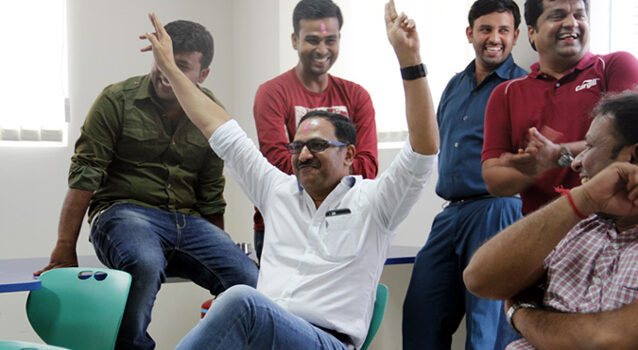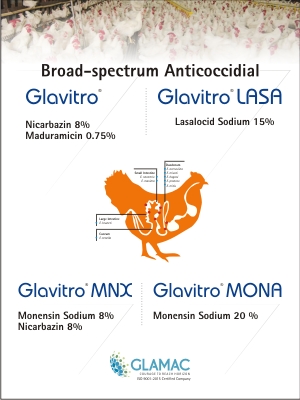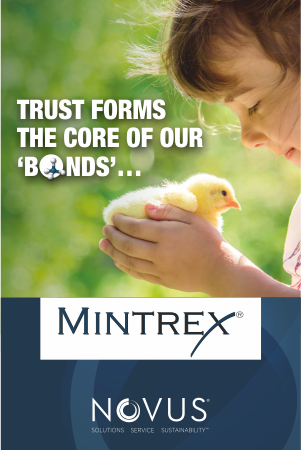For the purpose of the article, I will use the word “Humour / Fun” as synonyms & contextual. When young, I belonged to a modest family and my father invested everything in our education (incidentally, we were a family of 3 brothers). In those hard times, having fun all the time and laughing at our silly jokes & actions were our way of life. Humour was a single thread that kept us all together in good & hard times. Slowly our times changed and humour kept us grounded, in times of economic trajectory & professional successes. As we know, Humour / Fun does not care about Economic Status. It is an unabashed, intellectual, free-spirited, seamless Emotion and spreads happiness.
Cut to Professional life. I started my career in Human Resources Function, carrying FUN / HUMOUR in my DNA. During my HR Education / Training, we were taught that “O God, give me a person, who sings at work”, “If you are happy at Work, you are happy at Home”, “A happy employee is an engaged employee” and many more, which are little more than cliché.
It’s a proven fact that having fun at workplace fosters productivity. This means employees are more engaged, deliveries are more impactful and they look forward to the next working day. We, as employees, spend most of our waking time at work and during that time, if we pursue our professions with fun / humour, it does a whole lot of good to our emotional well-being.
In our Employee Life-cycle, we work as a Leader and sometimes as followers. In these roles, fun acts an important ingredient to build relationships and trust. Relationships needs Trust and Trust is serious business. Humor & Laughter adds that additional tinge to strengthen relationships. Relationships in all seriousness, personal or professional, is a boring affair and invites stress. Fun releases that stress and creates an atmosphere of lightness, where relationships thrive.
As a Director of HR, some peers, especially Finance, ask me, why are we indulging & spending so much on fun activities? To this my simple answer is – Our employees work in Teams, Teams will have relationships and intensity of work will take a toll on these teams. Having fun together is a great way for people to learn more about one another, to understand each other’s traits, strengths, weaknesses and boundaries. To include fun their team environment, they feel safe, secure and they create a language of oneness. The simple mantra being – The team that laughs together, stays together.
Now the big question – Is there a metrics for Fun? Little, Moderate or Excessive. How much fun is acceptable? Here are few tips on good clean fun:
-
Fun should be seen as light, harmless, and should evoke happiness to all, it touches.
-
When working in teams, as far as possible, one should not have fun at the cost of others – though it is easily said than done. If that happens, please focus on the incidence and not on the person.
-
Poking fun at a person & Mocking are two different things. When the thin line between Poking & Mocking is crossed, someone should step in and regulate.
-
It is generally seen that some employees have the knack of mimicking their superiors in public functions. Care needs to be taken that the mimicking is aimed at evoking special characteristics of that person and in no way derogatory.
-
Focus of fun should be at an intellectual level and not on physical levels. Having pranks or physical fun, often leads to fights. Be mindful here.
-
Humour / Fun aimed at colleagues, with sexual connotations / innuendoes are the cheapest form of entertainment, but liked by many. This could land you in real and legal trouble. AVOID AT ALL COSTS.
-
No sexist and/or casteist fun, as most of the workplaces are Diverse & Inclusive.
-
No matter how careful we are, we sometimes overstep and make fun of people or situations. If the cost of having fun is great, then be prepared to take the consequences as well. The best way is to apologize sincerely and move on.
-
The underlying philosophy should be “All Work and No Play – Makes one a dull person” AND NOT “All Play and No Work – Makes one a painful employee”.
Keeping these in view, being a humorous person myself, I tried to be “Happy / Funny / Humorous” and when I applied it too much, it back fired. Here are two real anecdotes:
Incident No. 1: Having Pungent Sense of Humour proved costly but beneficial
I worked with this HUGE Corporate Conglomerate in one of the Divisions as HR Manager. As a part of our learning, we were required to conduct HR audits periodically to some of our Group Divisions. Hotels were one amongst them. Since all the Hotels were 5-stars, we were treated with good food and sometimes liquor too. After sometime, we all become friends and get some discounts too. Frequenting those hotels on a weekend became a habit and there were times, due to hangover, taking sick leave on Monday was becoming normal. My boss was, naturally, irritated by this behaviour, but was tolerant. I presume it was due to my high deliveries & contribution to HR Dept.
On one such Monday, I had to take sick leave due to diarrhoea, as I ate some street fast food, during rainy season. Next day when I joined office, my boss came to my seat, which was an open office, with around 50 people working in the Hall. My Boss started shouting at me at the top of voice saying that I took leave on Monday, as I was drunk on Sunday, at the cost of Company’s hotel cost. I, politely and calmly, was trying to explain that I was genuinely sick due to diarrhoea and that he should trust me. Everyone was looking at us and some expecting that this showdown will not end well. My boss shouted back saying “Why should I trust you & what is the proof”. This statement triggered my funny bone and I replied back in bold voice “You have to trust me or else, next time I will attach my stool sample with the leave form”. Whoever could hear this, started laughing and my boss went back to his office. I bit my tongue and realised what a grave mistake I have done. This incident was taken seriously and I was transferred from core HR to PF / ESI section, where I was expected to manually calculate PF / ESI calculation for 1000s of employees and submit it before due date. I emphasize on “manually” as that time software automation had just started and computers were yet to be introduced to companies. Though this was considered as Punishment, considering my profile, I took it as a learning. What did I learn? I learnt patience, perseverance, accuracy in work, time management, consistency in efforts & results AND NOT TO BE TOO FUNNY WITH BOSSES.
Incident No. 2: Having Nasty Sense of Humour impacted career
I was working for an MNC and the Managing Director was an expat. He was new to India and I was assigned as a cultural coach to him. That time I was HR Director for Asia. Though I was reporting to him administratively, he respected me as his local coach. He was a very young professional from a reputed international University. As a personality, he was tall and extremely obese, with a pleasant face & temperament. We were extremely fond of each other and quite often we cut jokes during the meetings.
Once we conducted an Assessment Centre to identify core talent pool and leadership bench for critical roles. As Assessment Centre, we had 3 different rooms with 3 panels of judges to interview HiPos (High Potentials). I was sitting as a panel in one of the rooms. The MD was moving from room to another, just to see that everything is under control. One of the candidates was speaking very passionately & animatedly to us, proving her point. At that very moment, the MD entered our Room and the entire Room became silent due to his presence. He asked “What happened? Why is everyone silent?” My funny bone betrayed me and I blurted out “Everyone is quiet because they saw an Elephant in the room”. Suddenly he became red-faced (as he was obese) and everyone laughed out loud. The dictionary meaning of the phrase of Elephant in the Room is “a major problem or controversial issue which is obviously present but is avoided as a subject for discussion”. He left the room quietly. I ran out and apologized to him. I knew I body-shamed him with my nasty sense of humour and he will not forget this mistake of mine. As expected, after a year, HR transformation took place worldwide and many senior HR profiles were impacted. Some bosses saved “their people” by justifying their roles. But my MD did not support me. He could have fought for me, but he remained silent and I know for sure, he did not forget my comment “Elephant-in-the-Room”. I deserved this punishment. I paid heavily for this inhuman sense of humour and I promised myself, NOT TO USE MY SENSE OF HUMOUR TO HURT PEOPLE.
The above incidents have negative connotations. Nevertheless, if we do not take time to relax and have fun at workplace, we will live a miserable working life. Each day will be serious and stressful. Without fun, either we will burn-out or rust-out. Both will be harmful. Having fun has lots of biological effects. The happy hormones – Serotonin, Oxytocin, Dopamine and Endorphins – play an important part, but that’s a different topic altogether.
Our working life is a journey. Its upto us how do you want to travel – Either have fun & laughter OR travel with a grumpy face. My take – Have fun, even if you make mistakes or cross the line – At least you will have some “spicy” stories to tell your grandchildren or your teams. It’s better to have fun and live life.
About the Author:
Trideep Chowdhury is an astute Human Resources Management professional with extensive experience of over 3 decades working in Companies viz. Provimi India/Cargill Inc., ITC Limited, Intervet/Schering Plough, Voith India, etc. He had been in the Board of Directors for Provimi India (a Cargill Inc. Company) for many years. Some of the sectors served by him are Manufacturing, Process, Pharma, Engineering and Consulting. He had worked with MNCs in most of his career and had rich Regional (Asia) & Global project experiences. Currently he runs his own firm, Invictus HRM Consulting. He could be contacted at trideep2000@yahoo.com or invictus.hrm@yahoo.com
For more articles, visit HR Corner






